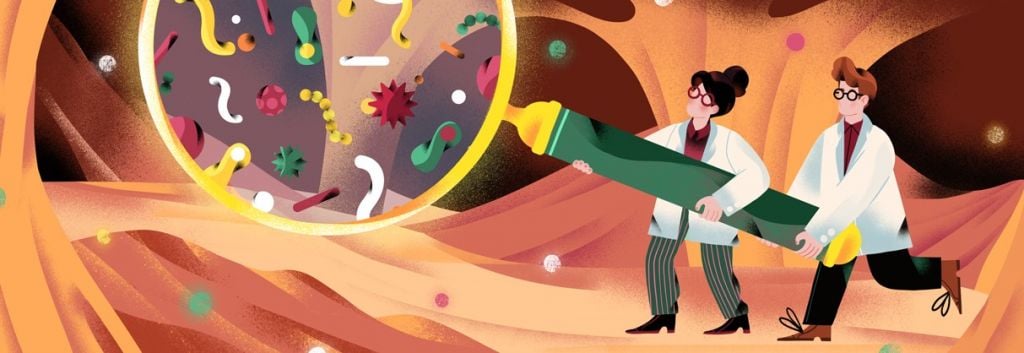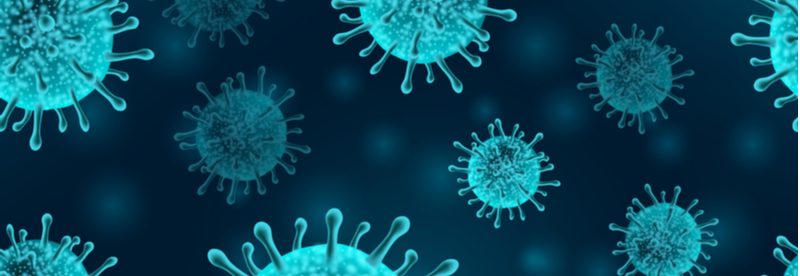For Isabelle de Cremoux, CEO and Managing Partner at Seventure Partners, 2020 was going to be an important year for microbiome research. However, the global coronavirus pandemic arrived, presenting one of the greatest unforeseen challenges in human history. I spoke to her about the microbiome field’s progress and the legacy of the Covid-19 pandemic going forward.
When de Cremoux first started working in the biopharma industry, she spent a decade in business development and licensing, making deals worldwide, first for Pfizer, then for Abbott. But a strong desire for greater involvement in company management led her to become a VC partner at the French firm Seventure Partners.
In 2001, when she joined, Seventure was mainly investing in digital activities, having jumped on the bandwagon of the internet bubble of the 1990s. The inspiration for de Cremoux was the idea of being able to kick off investment activities in the life sciences industry.
“I’ve always liked to start adventures from scratch,” she noted. “Joining a venture capital firm that had a track record and an activity in a segment, but having a blank sheet to actually create and shape activities in the life sciences, was attractive.”

In the next few years, de Cremoux created the life sciences department at Seventure, recruited a team, began to raise funds, and kicked off new deals for Seventure in life sciences. Their investments first started off in France but soon expanded into the rest of Europe, and from there to areas around the world such as Israel, North America, and Asia.
At first, de Cremoux would focus mainly on biotech, pharma, medtech, and diagnostics because these were the fields she knew from her former positions in the healthcare industry. But the time came in which she decided to think ahead and identify new trends.
De Cremoux became interested in the convergence between nutrition and pharma. She was intrigued by how food could impact drug metabolism and how nutritional solutions could have clinically proven health benefits.
“That’s what led me to the microbiome and the microorganism community living like an ecosystem both in the gut but also in the mouth or on the skin, everywhere a human being is in contact with the external world,” de Cremoux remembered.
“That is when I got the ‘wow factor’ and understood the potential of this disruptive innovation – that the microbiome could fuel both the pharma and the food industries.”

To enter the world of the microbiome, she and her team founded the €160M Health for Life Capital fund in 2014, and its second incarnation, Health for Life Capital II, which raised €200M in 2018. The core focus of the two funds is the different applications of the microbiome, including medication, diagnostics, dietary supplements, and nutrition.
In her investigations of the microbiome’s potential, de Cremoux noted that many people in the industry still mistrust the emerging field and its implications for human health and drug development research.
“When I see people skeptic about the microbiome, it reminds me – because I’m old enough to remember – of when the first RNAi [treatments] started or when the first antibodies started, there were a lot of skeptical people for those types of products,” de Cremoux said. “And look at what has become of antibodies now.”
Recent years have indeed seen increasing clinical trials in the microbiome field, as well as larger deals being made worldwide. In October 2019, for example, Merck teamed up with the UK biotech 4D Pharma to support the development of microbiome-based vaccines for three undisclosed indications, in a deal worth up to €316.5M per indication. And in February 2020, French company MaaT Pharma raised €18M in Series B financing to support phase Ib and II clinical trials for its microbiome-based cancer treatment.
A number of phase II and III microbiome clinical trials are also awaiting an outcome this year, including the results of Rebiotix’ phase III trial for its microbiota-based product against recurrent Clostridium difficile infections and of MaaT Pharma’s phase II trial against graft-versus-host disease. Examples of other companies with microbiome-based therapeutics in clinical trials are Vedanta Biosciences, Seres Therapeutics, BiomX, and Enterome.
“I think even if only a few of those [clinical trials] are positive, they will completely change the way big pharma sees the microbiome field,” de Cremoux said.

But how the current Covid-19 pandemic will affect these clinical trials is unknown. “Before Covid-19, I was thinking that 2020 would really be the inflection year for the microbiome,” de Cremoux said. “But I have no idea yet, because it’s too recent, how much delay Covid-19 will cause for those clinical trials.”
However, de Cremoux pointed out that some companies could also benefit from the Covid-19 pandemic, especially those that were able to prepare in advance. After observing what was happening in China in December 2019, Seventure began to draw up contingency plans to ensure that its teams could work remotely, were fully equipped with the appropriate IT systems, and were able to keep in touch with their limited partners, portfolio companies, and with each other.
“We were prepared,” said de Cremoux. “We’re still in full investment mode, making new deals in this period because the history and the observation of the past have always shown that in the low part of economic cycles that’s also when you get the best deals. You have more choices.”
“A lot of VCs are currently inactive, they’ve put everything on hold… So while those unprepared are out of the game, the prepared ones, like we are, will have a lot of choice because of this situation.”

When searching for investment opportunities worldwide, de Cremoux looks for life science companies that fulfill a number of criteria. These company criteria include a strong intellectual property position on its products, an excellent scientific foundation, and lastly, the product needs to match the market need.
In particular, the management teams of European companies are scrutinized more than those in Israel or North America. “We put attention on the team and its ability to present to and convince… investors, future collaborators, or acquirers,” de Cremoux pointed out.
“That’s a weakness of the European teams – sometimes they are too national, the Germans are German, the French are French. That’s okay for national development, but it’s a handicap that slows down the international development and the price for exit.”
De Cremoux also looks at how other life science areas can have interesting applications for microbiome research. Digital technology, for example, could help the microbiome field by ushering in better data recruitment and sharing, and will enable the progress of precision medicine, she said.
There will also be greater use of the omics field. “Not only at a research level, where it’s been used for a long time, but now in the diagnostic industry more and more.”
Another future trend, in de Cremoux’s opinion, will be the increase of supportive care in combination with nutrition, digital coaching, and microbiome-based personalized therapies. “I think the microbiome is a game-changer,” she said.

So even though the Covid-19 pandemic has thrown many industry segments off course, the microbiome field, at least, seems to be heading for a promising future. But de Cremoux also sees some positive outcomes for the life sciences industry as a whole.
“I’m optimistic for the longer term because after this is over – when people have recovered and the economy is partially back to normal – in all countries, governments will probably put healthcare as the top priority of their programs everywhere,” she concluded.
“The cost-cutting that was anticipated before will probably be put on hold and could even lead to an increase in budget and a greater focus on healthcare systems. So we expect the end of 2020, to have a really positive impact from the [Covid-19] crisis, for life science. I would not be as optimistic for other segments.”
Images via Elena Resko & Shutterstock.com





